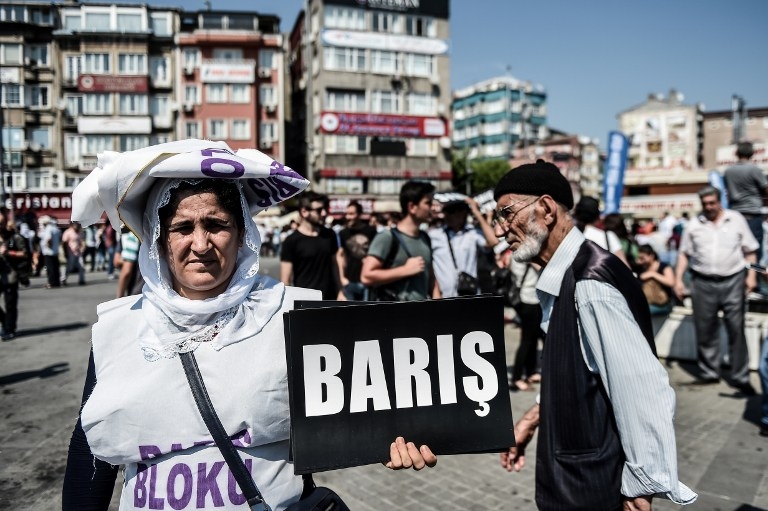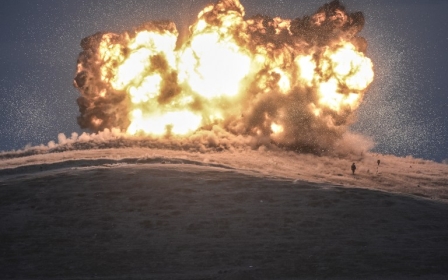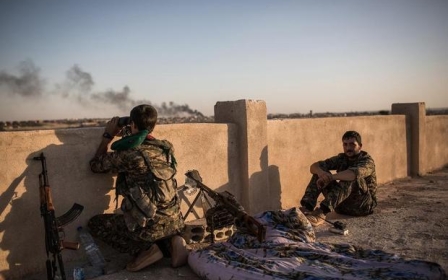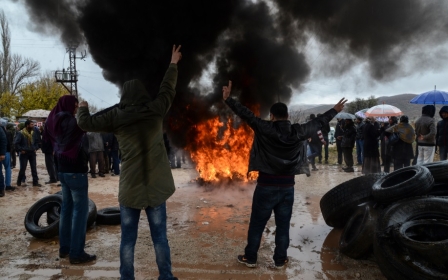ANALYSIS: Turkey's regional policy and the Kurdish peace process

A bomb attack over Turkey’s southeastern town of Suruc on 20 July, which claimed the lives of 32 people and wounded hundreds, opened a new chapter in Turkey’s previously primed peace process.
While the attack was blamed on Islamic State (IS) militants, it prompted a furious reaction from the Kurdistan Workers’ Party (PKK) that blamed the attack on what it percieves as the government’s failure to act against IS. PKK militants shot dead two Turkish soldiers in their sleep.
As a reaction to a spike in attacks targeting security forces, claiming the lives of at least 50 policemen, Ankara launched on 24 July its first airstrikes against IS in Syria, then began attacking targets of the PKK in northern Iraq, in a dual "war on terror".
Turkey claims to have killed at least 771 PKK militants since pursuing a month-long campaign of air attacks against the PKK in the Turkish southeast and northern Iraq, and has arrested around 1,600 people in nationwide operations to apprehend suspected militants of PKK, IS, and the far-left Revolutionary People's Liberation Party-Front (DHKP-C) - all three of which are designated as terrorist groups in Turkey.
While the peace process had already been suffering since October last year - when Kurdish-majority regions in southeast Turkey witnessed violent clashes as riots broke out over perceived government inaction in Kobane – the recent violence on the Turkish-Syrian border and continued Syria civil war have revealed the vulnerability of the precarious peace process.
Analysts say that Turkey’s campaign against the PKK will only weaken - but cannot destroy - the Kurdish militant group. In order to mend the peace process, new and increasingly pressing issues need to be brought to the fore instead.
Wider reforms
After decades of violence President Recep Tayyip Erdogan and the Justice and Development Party (AKP) government began a peace process with the jailed PKK leader Abdullah Ocalan. The declared 2013 ceasefire has been left in tatters by the current violence.
“Since the initiation of the peace process, the government hasn’t made any distinction between the Kurdish issue as an ethno-national question and the PKK question as an armed insurgency,” said Galip Dalay, research director at Al-Sharq Forum.
“There is no denial that there is a significant level of overlap [but] the PKK laying down its arms will only provide amenable grounds for the political and civilian aspects of the Kurdish issue to dominate the picture more thoroughly. Some level of differentiation between the two is long overdue.”
The peace process has focused on Turkey ensuring that the outlawed PKK lay down their arms in order to start negotiations. But after the left-leaning pro-Kurdish People’s Democratic Party (HDP) won nearly 13 percent in the 7 June general elections, analysts believe that the government needs to engage Kurdish actors other than the PKK, a group that not all Kurds recognise as representative of their demands.
“To the chagrin of the non-PKK Kurdish groups, Turkey has solely engaged the PKK to find a solution to both issues,” added Dalay.
Pinar Elman, Turkey analyst at the Polish Institute of International Affairs, agrees that military means are not enough to defeat the PKK and reforms are needed.
"The PKK benefits from the Kurdish problem in Turkey and of the sociological base created by this problem," she told AFP. "Turkey should question how the PKK has been able to recruit among young people despite the peace process."
Regional dimension
Not only does Turkey need to carry out reforms and expand the peace process into a more inclusive discussion of Kurdish rights, it also needs to incorporate a regional policy that is aware of an increasingly unified cross-border Kurdish front, analysts say.
“Turkey took a piecemeal approach, developing a good relationship with [Iraqi Kurdish] KDP alone while not establishing a comprehensive policy towards all Kurdish groups in the region,” said Dalay. “It considered Kurds anywhere as a threat.”
Turkish columnist Merve Oruc believes there was a slow recognition of the importance of Kurdish groups to one another for some time.
“Kurdistan Regional Government (KRG) leader Barzani has a major influence on the Kurdish society in Turkey - many admire him and his policies,” said Oruc, adding that then prime minister Erdogan invited KRG President Masoud Barzani to Diyarbakir in 2013 in an attempt to enhance the peace talks.
The situation in Syria and the fight against IS has further cut across borders making it even more pressing for Turkey to develop a regional Kurdish policy.
“A Kurdish public sphere and growing ethnic consciousness is emerging. Kurds are no longer only concerned about their immediate local issues, but increasingly with Kurdish issues across their border,” said Dalay. “This sense of unity has developed even further with the fight against IS.”
And despite Turkey outlawing the PKK, a significant part of this public sphere is increasingly supportive of the group.
“The PKK’s ideology is a bit outdated but the group is becoming fairly popular across the region especially since the Syria war. They are seen as avenging the weak in Iran, Turkey, Syria, Iraq,” said Shwan Zulal, associated fellow at the European Centre for Energy and Resource Security (EUCERS).
IS fight enhances PKK
The PKK’s fight against IS has revitalised the Kurdish group and restored its legitimacy while the rise of IS has exposed the vulnerabilities of the Iraqi KRG's Peshmerga forces, giving the PKK an opportunity to shine in Iraq and Syria.
The PKK’s rise as a transnational player has transformed PKK-aligned parties such as the Democratic Union Party (PYD) in Syria, and its associated militia, the People’s Protection Units (YPG) into dominant political and military powers inside Syria and in Iraqi Kurdistan, said Kurdish expert and ECFR fellow Cale Salih.
The Marxist-Leninist inspired PKK first formally took up arms against the Turkish state in 1984, launching an insurgency that has since claimed tens of thousands of lives. Initially it demanded full-scale independence for Turkey's Kurds in the southeast, although now the focus is on autonomy and greater rights.
Governments in the region, specifically the KRG in northern Iraq, have formally distanced themselves from PKK in order to maintain cordial and mutually beneficial relations with Turkey. But public pressure may be creating some change, analysts say.
“The growing public Kurdish sphere has put pressure on the political Kurdish class, which although still predominantly divided, feels less comfortable to openly take action that is perceived as a push against another Kurdish group,” explained Dalay.
Zulal believes that while Kurdish public support for the PKK is growing, it is limited and remains dependant on economic interests that are strongly tied to Turkey.
New MEE newsletter: Jerusalem Dispatch
Sign up to get the latest insights and analysis on Israel-Palestine, alongside Turkey Unpacked and other MEE newsletters
Middle East Eye delivers independent and unrivalled coverage and analysis of the Middle East, North Africa and beyond. To learn more about republishing this content and the associated fees, please fill out this form. More about MEE can be found here.




